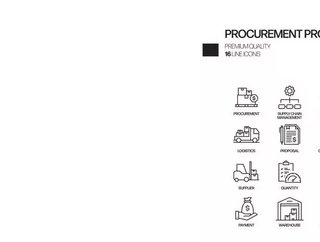Bridging the Digital Skills Gap in Procurement

Over the last two decades, procurement has evolved from merely being a cost-cutting department to a vital ally that can help inform business strategy. Today, procurement plays an active role in boardroom discussions around sustainability, supplier risk and profitability. The current COVID-19 pandemic has further reinforced the importance of procurement for businesses looking to adapt to a constantly changing local and global business environment.
With procurement now taking more of a leading role, the skillset required has expanded to include more technical and analytical capabilities, as well as an aptitude for collaboration with suppliers and cross-functional stakeholders. The same applies to technology, which is increasingly critical to freeing capacity, improve decision-making and enabling scalable, effective collaboration. Now, to retain their status at the boardroom table, the procurement department must ensure it has the right people with the right skillset to use new technologies effectively.
The new digital revolution for procurement
Technology has been the driving force behind procurement’s rise to strategic value driver, especially in light of the COVID-19 pandemic. According to new research, most UK businesses believe greater digitisation (84%) and better digital skills (83%) in procurement would have enabled them to mitigate the impact of COVID-19 more effectively across the business.
This is because digital technologies such as AI and cloud-based platforms can help businesses to manage risk and make informed decisions. The agility that comes from using technologies like AI and cloud allows organisations to respond effectively to events such as COVID-19 or prepare for the changes that Brexit will introduce into supply chains, as well as drive automation in time-consuming administrative tasks. For example, automating processes like generating POs and approving invoices improves operational efficiency and frees up time for employees to work on business-critical tasks. As part of the efforts to digitally transform and realise these benefits, adoption of technologies like data analytics and automation by UK businesses is on the up.
However, when it comes to deploying technology as part of digital transformation initiatives, finding the accompanying skills can be difficult. More than three-quarters (76%) of UK businesses are concerned that existing procurement teams will struggle to work with new technologies, while almost nine-in-ten (88%) find it challenging to hire people with the right digital skills into procurement teams who can work with new technologies. To digitally transform procurement, businesses need to think beyond technology adoption – finding people with the right digital skills or upskilling existing teams is just as important.
Uplift procurement with smart solutions
With procurement professionals working on the supply chain front lines, identifying supplier risk before it happens and mitigating the effect of risk events, it’s vital they are supported by the right tools and armed with the right skills to succeed. Yet, significant challenges remain for those looking to reap the strategic and competitive advantages of digital skills in procurement. In fact, when developing digital skills in procurement, 86% of UK businesses claimed they had faced barriers. The biggest barriers to developing digital skills are the shortage of digitally savvy talent (31%) and a lack of training for technical and soft skills (28%).
Finding the right talent during a shortage can take some time, so businesses need to act now to reduce the burden on current procurement teams and increase time-to-value of technology investments. Adopting smart procurement can help to achieve quick wins, enabling employees to make the most of procurement technology straight away, while opening the door to more advanced technologies like AI and chatbots. Smart procurement can also reduce strain on employees by automating simple tasks to free up capacity for planning; improving access to actionable insights and improving visibility into supplier risk and savings opportunities.
Uncertain times call for certain measures
Procurement professionals with the right tools will be able to identify supplier risk before it happens and help drive greater collaboration with suppliers. UK businesses recognise these benefits, as 91% of UK businesses say that improving digital skills can help make procurement more strategic, while 94% say it will help them gain a competitive advantage.
The global pandemic has proved that organisations which have taken steps to adopt easy-to-use tools have responded better to the unpredictable and changing environment. Those that don’t invest in the right tools risk being left behind by more digitally advanced competitors, losing market share and missing opportunities to save money and innovate.
By making procurement smarter, businesses are giving teams the tools and skills that the businesses need to thrive. This is particularly vital in ‘the new normal’ and having the right tools will help procurement teams to react and proactively address the shifting sands of a post-COVID world and prepare for the uncertainty of Brexit.
- The Home Depot is Enhancing CX thanks to Google CloudTechnology
- WATCH: Ivalua and PwC Navigate the Future of ProcurementProcurement
- Top 10: Women in Supply Chain and Procurement in APACProcurement
- Dumarey Streamlines Suppliers with BearingPoint and JAGGAERSupplier Relationship Management (SRM)






